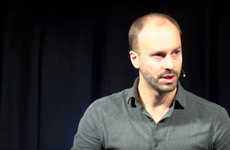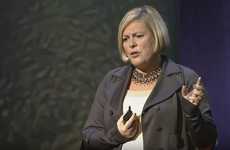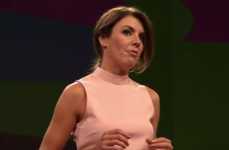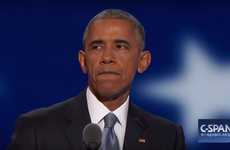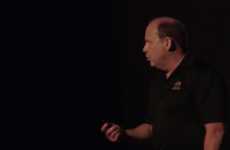
Need Inspiration?
Get inspired by 4,000+ keynote speaker videos & our founder, a top keynote speaker on innovation.
Simon Anholt Gives an Outward-Looking Speech About Elections
Mishal Omar — May 11, 2017 — Keynote Trends
References: goodcountry.org & youtube
In his speech about elections, the independent policy adviser Simon Anholt discussed how countries are becoming increasingly inward-facing when they should be moving towards the opposite.
He begins his speech by describing that in the 2016 US election, Hillary Clinton won in a landslide victory with 52% of the vote, while Jill Stein and Donald Trump came in second and third respectively. This of course was not the reality of the election, but it would have been a reality if the rest of the world had a say on who should be elected. Anholt knows this because he recently launched The Global Vote – a website and initiative which seeks to understand how the world would vote in elections in other countries. The website briefly outlines the candidates views and asks them two questions: if you get elected, what will you do for the rest of us, and what is your vision for your country's future in the world? While not all candidates respond, many do with enthusiasm. Anholt discussed that the global vote results very rarely predict the true outcome of the elections, and he explains that this is because domestic voters are still thinking from a national and inward perspective, rather than how their country's decisions will affect the rest of the world.
With globalization, hyper-connectivity and the ever-increasing interdependent world we currently live in, it is crucial that politicians and leaders in all respects start collaborating across borders, and think about how their actions will affect the rest of the world. As Anholt points out, this new mandate for leadership is needed now more than ever with the economic turmoil, human rights abuses, climate change, terrorism and bevly of other issues that the world currently faces. Anholt ends by cautiously but hopefully declaring that time is running out, but something can still be done.
He begins his speech by describing that in the 2016 US election, Hillary Clinton won in a landslide victory with 52% of the vote, while Jill Stein and Donald Trump came in second and third respectively. This of course was not the reality of the election, but it would have been a reality if the rest of the world had a say on who should be elected. Anholt knows this because he recently launched The Global Vote – a website and initiative which seeks to understand how the world would vote in elections in other countries. The website briefly outlines the candidates views and asks them two questions: if you get elected, what will you do for the rest of us, and what is your vision for your country's future in the world? While not all candidates respond, many do with enthusiasm. Anholt discussed that the global vote results very rarely predict the true outcome of the elections, and he explains that this is because domestic voters are still thinking from a national and inward perspective, rather than how their country's decisions will affect the rest of the world.
With globalization, hyper-connectivity and the ever-increasing interdependent world we currently live in, it is crucial that politicians and leaders in all respects start collaborating across borders, and think about how their actions will affect the rest of the world. As Anholt points out, this new mandate for leadership is needed now more than ever with the economic turmoil, human rights abuses, climate change, terrorism and bevly of other issues that the world currently faces. Anholt ends by cautiously but hopefully declaring that time is running out, but something can still be done.
1.9
Score
Popularity
Activity
Freshness


